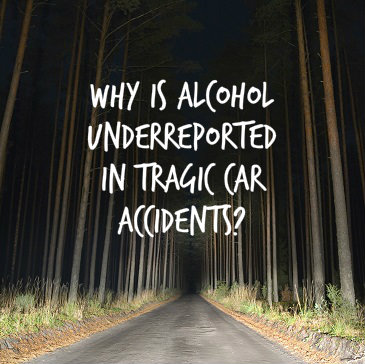Why Is The Role Of Alcohol in Traffic Deaths Significantly Underreported?
Research studies in the area of substance abuse often lead to new strategies for treatment, or the tossing out of treatments that are proven ineffective. Research is also used to show how trends in the use of certain substances change over time, or among different segments of the population. Public policy requires information that accurately reflects the trends in substance use in order to establish laws and regulations that discourage substance abuse. A study illustrates the inaccuracies that plague state reporting agencies when determining the cause of death in a traffic accident.
According to the study by National Institute on Alcohol Abuse and Alcoholism (NIAAA) researchers there were more than 450,000 U.S. traffic deaths between 1999 and 2009. In many of these cases alcohol was involved but was not referenced on the death certificates as cause of death. While correct causes of death on death certificates may seem trivial, injuries remain the leading cause of death in the U.S. for individuals under the age of 45, according to the Centers for Disease Control and Prevention.
Importance Of Understanding Alcohol’s Role In Car Accidents
 Study leader Ralph Hingson, Sc.D. of the NIAAA stresses the importance of having a clear understanding of alcohol’s role in the leading cause of death for an age group. Only with correct information can officials determine whether policies aimed at reducing alcohol-related deaths are effective. The size of the problem must be measured, tracked and then assessed in order to best create prevention and intervention measures.
Study leader Ralph Hingson, Sc.D. of the NIAAA stresses the importance of having a clear understanding of alcohol’s role in the leading cause of death for an age group. Only with correct information can officials determine whether policies aimed at reducing alcohol-related deaths are effective. The size of the problem must be measured, tracked and then assessed in order to best create prevention and intervention measures.
The researchers started by looking at all traffic deaths because the records are more accurate when compared with other types of accidental death. In approximately half of all U.S. states there is a requirement that the fatally injured driver be tested for blood alcohol levels. This information is then entered into the National Highway Traffic Safety Administration’s Fatality Analysis Reporting System database. The database results were then compared with death certificates from across the U.S.
The researchers found that the role of alcohol in traffic deaths in the decade studied was significantly underreported. Only three percent of the death certificates listed alcohol as a contributing cause of death, while the database rated 21 percent of deaths as legally drunk.
States Reporting Alcohol In Accidents Differs – Importance Of Best Practices
The findings were not consistent from state to state. In some states alcohol was rarely included on death certificate information, such as in Maryland, New Hampshire, Nevada and New Jersey. Other states, including Iowa, Minnesota, Kansas and Delaware, were better about accurately reporting alcohol’s role in the death.
The researchers noted that the discrepancy in reporting could be due to long waiting periods for receiving blood alcohol level test results. In most cases a coroner or medical examiner is required to file a death certificate within three to five days, which may be sooner than a toxicology report can be received.
The researchers stressed the importance of determining which practices are followed by states that seem to be reporting more accurately. Establishing best practices for other states to follow may make reporting on traffic fatalities involving alcohol more accurate.
Having laws in place requiring alcohol testing did not seem to result in better reporting. However, Hingson says that the results illustrate the wide gap between the number of accidental deaths related to alcohol consumption and those that are reported.



